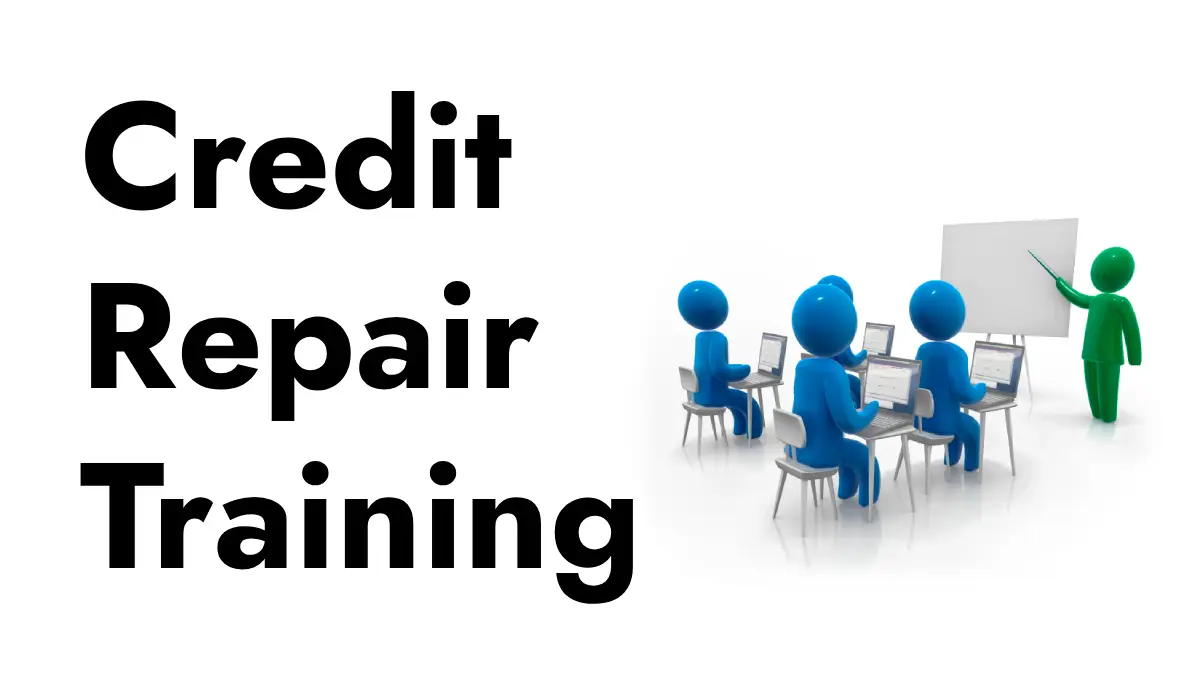Credit repair training is a program designed to teach individuals how to fix and improve their credit scores. This training is important because a good credit score can help people get loans, credit cards, and even jobs. Let’s explore what credit repair training involves, why it’s useful, and how you can get started.

- Certified pre-approval Process
- Online Application Available 24/7
- Find a Quote Easily
4
editorial team. We score based on factors
that are helpful for consumers, such as
how it affects credit scores, the rates and
fees charged, the customer experience,
and responsible lending practices.

- Certified pre-approval Process
- Online Application Available 24/7
- Find a Quote Easily
- 100% Online Refinance
4.5
editorial team. We score based on factors
that are helpful for consumers, such as
how it affects credit scores, the rates and
fees charged, the customer experience,
and responsible lending practices.

- Boost Credit Score
- Personal Loans
- Credit repair services
5
editorial team. We score based on factors
that are helpful for consumers, such as
how it affects credit scores, the rates and
fees charged, the customer experience,
and responsible lending practices.
- Big or Small Loan
- All Credit Types
- Fast Funding
4
editorial team. We score based on factors
that are helpful for consumers, such as
how it affects credit scores, the rates and
fees charged, the customer experience,
and responsible lending practices.

- High approval rates
- Financial guidance
- Unlimited access to credit options
4
editorial team. We score based on factors
that are helpful for consumers, such as
how it affects credit scores, the rates and
fees charged, the customer experience,
and responsible lending practices.

- Credit monitoring
- Personalized credit tips
- TransUnion® credit report and score
4.6
editorial team. We score based on factors
that are helpful for consumers, such as
how it affects credit scores, the rates and
fees charged, the customer experience,
and responsible lending practices.

- Provide tax advice
- Debt relief services
- Credit repair services
4
editorial team. We score based on factors
that are helpful for consumers, such as
how it affects credit scores, the rates and
fees charged, the customer experience,
and responsible lending practices.

- Est. APR = 0%
- Fees = None
- Recommended Credit = None
3.6
editorial team. We score based on factors
that are helpful for consumers, such as
how it affects credit scores, the rates and
fees charged, the customer experience,
and responsible lending practices.
Why is Credit Repair Important?
Your credit score is like a grade that shows how well you manage your money. A high score means that you have paid the borrowed money on time and never have been late. A low score can make it hard to borrow money or get good interest rates.
Many people have mistakes on their credit reports or need help understanding how to improve their scores. Credit repair training can help people learn how to fix these issues and build better credit habits .
What You Learn in Credit Repair Training
- Basics of Credit Repair: You’ll start by learning what a credit report is and how to read it. A credit report shows your credit history, including loans, credit cards, and any late payments. You’ll also learn about the laws that protect you, like the Fair Credit Reporting Act (FCRA), which lets you dispute incorrect information on your report.
- Disputing Errors: One of the main parts of credit repair is finding and disputing mistakes on your credit report. For example, if there’s a loan listed that you never took out, you can send a dispute letter to the credit bureau. The bureau must investigate and correct any errors (Credit Repair Training).
- Improving Credit Scores: Training will also teach you ways to improve your credit score. This includes paying bills on time, reducing the amount of debt you owe, and managing credit cards wisely. You’ll learn strategies to boost your score quickly and maintain it over time.
- Advanced Tactics: For those who want to dive deeper, advanced courses cover topics like negotiating with creditors to remove negative items, dealing with collections, and creating goodwill letters. These are letters you write to creditors asking them to remove a late payment from your report as a goodwill gesture if you have been a good customer otherwise.
Starting a Credit Repair Business
Many people who learn credit repair skills decide to start their own credit repair businesses. This can be a great way to help others while earning money. Here’s how you can get started:
- Business Basics: Learn how to set up your business, including getting the necessary permits and licenses. You’ll also need to understand the legal aspects of running a credit repair business to make sure you comply with the laws.
- Marketing Your Services: To attract clients, you’ll need to know how to market your services. This includes building a website, using social media, and getting referrals from satisfied clients. Some courses offer tips on how to get clients without spending a lot of money on advertising.
- Certification: Getting certified can help build your credibility. Organizations like the National Association of Credit Services Organizations (NASCO) offer certification programs. These programs often include exams to test your knowledge and ensure you are well-prepared to help others.

- Certified pre-approval Process
- Online Application Available 24/7
- Find a Quote Easily
4
editorial team. We score based on factors
that are helpful for consumers, such as
how it affects credit scores, the rates and
fees charged, the customer experience,
and responsible lending practices.

- Certified pre-approval Process
- Online Application Available 24/7
- Find a Quote Easily
- 100% Online Refinance
4.5
editorial team. We score based on factors
that are helpful for consumers, such as
how it affects credit scores, the rates and
fees charged, the customer experience,
and responsible lending practices.

- Boost Credit Score
- Personal Loans
- Credit repair services
5
editorial team. We score based on factors
that are helpful for consumers, such as
how it affects credit scores, the rates and
fees charged, the customer experience,
and responsible lending practices.
- Big or Small Loan
- All Credit Types
- Fast Funding
4
editorial team. We score based on factors
that are helpful for consumers, such as
how it affects credit scores, the rates and
fees charged, the customer experience,
and responsible lending practices.

- High approval rates
- Financial guidance
- Unlimited access to credit options
4
editorial team. We score based on factors
that are helpful for consumers, such as
how it affects credit scores, the rates and
fees charged, the customer experience,
and responsible lending practices.

- Credit monitoring
- Personalized credit tips
- TransUnion® credit report and score
4.6
editorial team. We score based on factors
that are helpful for consumers, such as
how it affects credit scores, the rates and
fees charged, the customer experience,
and responsible lending practices.

- Provide tax advice
- Debt relief services
- Credit repair services
4
editorial team. We score based on factors
that are helpful for consumers, such as
how it affects credit scores, the rates and
fees charged, the customer experience,
and responsible lending practices.

- Est. APR = 0%
- Fees = None
- Recommended Credit = None
3.6
editorial team. We score based on factors
that are helpful for consumers, such as
how it affects credit scores, the rates and
fees charged, the customer experience,
and responsible lending practices.
Tips for Success
- Stay Informed: The credit repair industry is always changing. New laws and regulations can affect how you do business. Stay updated by reading industry news and taking additional training courses when available (Credit Repair Training).
- Build a Network: Connect with other professionals in the credit repair industry. This can include credit counselors, financial advisors, and other credit repair specialists. A strong network can provide support, referrals, and valuable advice.
- Ethical Practices: Always follow ethical practices. Avoid “get rich quick” schemes and be honest with your clients about what you can and cannot do. Reliable credit repair involves time and effort, and there are no overnight fixes.
Conclusions
Credit repair training can be a valuable investment whether you want to improve your own credit score or help others as a business. By understanding the basics, learning advanced tactics, and following ethical practices, you can make a significant impact on your financial future or that of your clients. Start your journey today and see how you can transform your credit and your life.


 Read More
Read More 




